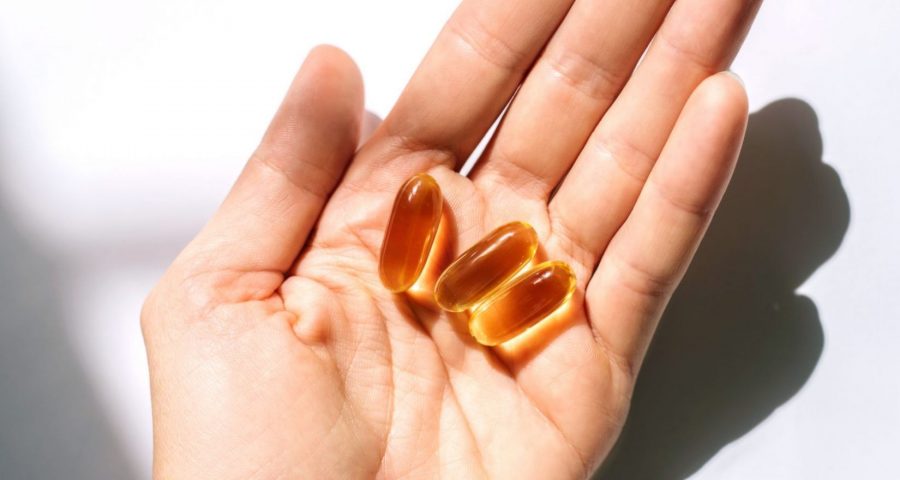Do you only take Berocca or zinc supplements when you’re convinced you’re about to come down with a cold? We explore whether that’s the right way to stay healthy.
What’s your go-to remedy when you’re feeling run down? Perhaps you start guzzling First Defence and orange juice or sack off any plans you’ve made and opt to stay in bed instead (a stitch in time and all that). Or maybe you’re like the Strong Women team and you head to Holland & Barrett to stock up on B vitamins and zinc supplements as soon as you feel a cold heading your way.
For months, you might feel fine and dandy, without so much as a cod liver oil capsule passing your lips, and then you’re hit by a wave of illness or fatigue, and for weeks after, you’re dosed up on every supplement going. It makes sense: when we’re feeling fine, we don’t feel like we need any extra nutritional support. But is supplementing only when we’re feeling run down necessarily the right thing to do?
You may also like
5-HTP and magnesium: are these supplements the key to better sleep and mood?
“I think that we intuitively know when we need to supplement or not,” says registered nutritionist Marjolein Dutry van Haeften. “When we’re feeling great, we often forget to take our supplements, and then we have a bit of a dip and we’re like, ‘Oh yeah, I’ll go back to them.’”
Daniel O’Shaughnessy, director of nutrition and certified functional medicine practitioner at The Naked Nutritionist, agrees: “I guess people do reach out more when they are run down or there is a public scare – like during Covid, when people were reaching for more immunity supplements.”
The problem, O’Shaughnessy believes, is that not everyone is sufficiently educated on supplements to know that you can also take them when you’re feeling healthy to support normal function.
Which vitamins should you be taking every day?
As children, many of us were given multivitamins and cod liver oil alongside our breakfasts, and if you’re anything like me, you’ll have continued taking certain supplements as standard – taking extras like zinc or vitamin C when someone in the office has a cold or when you’re feeling slightly worse for wear. If you’ve had a few sleepless nights, you might buy a month’s supply of magnesium.
O’Shaughnessy confirms that a multivitamin can be taken every day “if you don’t have a very healthy diet”. In fact, we’ve previously spoken about the fact that multis might not necessarily be the best way of getting necessary nutrients; if you have a plant-heavy, whole-foods based diet, the chances of you needing to take a multivitamin are low. If you’re vegan, however, you may need to take certain vitamins and minerals consistently, like iron, B12 and omega-3. And if you’ve been tested and know that you’re anaemic or have any deficiencies, then you’re going to want to supplement those nutrients whether you feel lethargic or not.
Can you actually overdose on supplements?
The NHS warns against taking supplements for too long. Excess water-soluble vitamins like C and B vitamins are easily excreted by the body, but taking very high doses of vitamin B6 (over 1.2mg for women) can be dangerous, while too much B3 (niacin – over 13.2mg for women) may cause liver damage.
Fat-soluble vitamins, however, are different. They can build up in the body, leading to toxicity. Taking large amounts of vitamin A can be lethal, too much vitamin D (over 600 IU) can result in an irregular heartbeat and elevated calcium levels in the blood, and vitamin E can reduce our blood’s ability to clot normally. So, you really want to watch how much of these you’re consuming and make sure that you’re not just blindly taking a range of supplements that contain the same nutrients.
You may also like
Boost energy, improve sleep and strengthen immunity: are isolated vitamins more effective than multivitamins?
But if you are feeling run down, is supplementation the best thing to do? Rest and a well-balanced diet aside, O’Shaughnessy says that he recommends taking vitamin C and D (the latter being the only supplement the NHS advises most of us to take during the winter months).
“I also like to take beta glucans, which are from fungi and have some immune supportive properties,” he says. Those beta glucans are a type of soluble fibre thought to help activate the immune cells and protect against infection.
While there are probably loads of things you could do to make yourself feel a bit better (quitting your job not being an option), there’s nothing wrong with taking supplements only when you’re feeling a bit grim. But once you’re out of the woods, it might be worth getting checked by your GP to see if you’re actually deficient in anything, and working out how you might make up any lower levels over a sustainable period of time. It’s important not to blindly take supplements, so if you do that, be sure to assess a few months down the road to see if you still need to take them.
For more supplement information, check out the Strong Women Training Club.
Images: Getty
Source: Read Full Article
